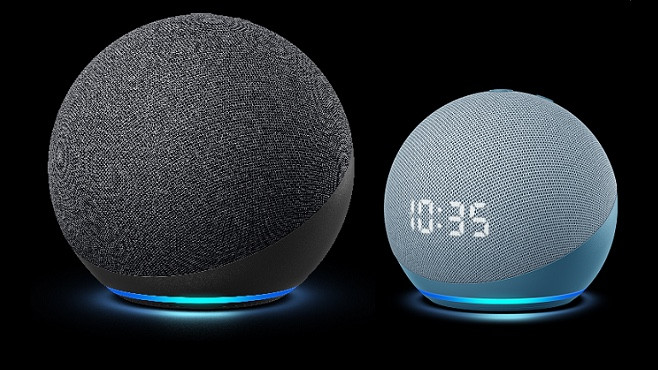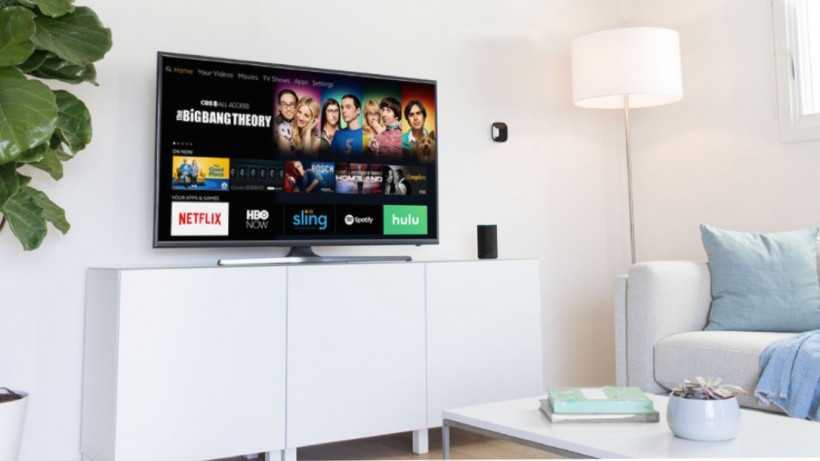What Amazon's latest connected home idea could mean for you
Your Sonos speakers are blaring an alarm sound into every room. The Philips Hue lights are flashing red, the robot vacuum cleaner is rolling menacingly slowly towards you and your Echo is telling you that this month’s rent is late.
This dystopian nightmare is a worst-worst-case scenario for Alexa for Residential, Amazon’s just-announced scheme to put voice controlled smart home tech into rental apartments and houses, starting this fall with partnerships locked in with IOTAS, Stratis IOT and Sentient Property Services.
It means that property managers can set up Echo devices, smart TVs, lights, appliances and the rest in for-rent homes as an additional amenity for tenants, who don’t even have to have their own Amazon account.
Amazon says property managers won’t have access to any tenant data or voice recordings and that those Alexa voice recordings will be deleted automatically on a daily basis to ensure user privacy.
So what’s the best case scenario?
The apartment as a hotel
Amazon first put a custom version of its Alexa voice assistant into hotel rooms back in June 2018, with Marriott hotels getting on board the Alexa for Hospitality scheme a few months later that October.
It was a similar concept to this new Residential program, with low friction Wi-Fi connected room controls and location-specific questions and answers available for hotel guests. In this case, there’s information on, for instance, local recycling days and, as per Amazon’s video ad, what floor of the building the swimming pool is on.
At best, then, Alexa for Residential might suit business people who are relocating to a new city and are being housed temporarily in a luxury apartment by their company while they get settled.
Either the short-term tenant or their workplace will be happy to pay a little extra each month for all the Alexa-connected mod-cons.
It’s also likely to appeal to millennials with demanding jobs, disposable income and an aversion to ownership who are looking to maximise their non-work leisure time and minimise household chores.
The upper earning end of the Uber-Deliveroo-Monzo crowd can outsource some more day-to-day drudgery to a hotel-like Alexa service.
In other words the upper earning end of the Uber-Deliveroo-Monzo crowd can outsource some more day-to-day drudgery to a somewhat personalised, hotel-like Alexa service.
With regards to these particular demographics, the incentive for property managers is clear: this is one more service that could be used as a basis to increase rental fees and monthly add-ons as well as to justify the development of surplus ‘luxury’ apartments in cities which need more affordable housing.
With Amazon taking care of the tech side, the initial investment will probably pay for itself within one or two years because when the tenants move out, the smart home stays.
Alexa for Residential isn’t without other potential issues for renters, even if both Amazon and landlords stick to their word on user data.
From the few model use cases provided in the initial announcement, it seems this technology could be used to further distance the tenant from the property management.
Does any tenant really want to rely on an Amazon Echo to communicate “maintenance requests” for their home?
Who is this for, exactly?
With Airbnb owners getting into hot water over smart security cameras inside properties and cases of domestic abusers using smart home technology to monitor and intimidate their victims, there are bound to be unforeseen consequences to relinquishing some management of your home’s connected devices to people you may never have met in person.
To go full Black Mirror, future landlords may even offer a discount on rent to waive user privacy and sell the behaviour data onto interested parties. Amazon says it’s not in the business of selling data.
Amazon cites stats from the NAA in August 2019 that say 84% of renters want an apartment with smart home amenities and 61% would pay a monthly fee for a voice assistant.
This makes the timing of the Alexa for Residential announcement especially interesting. Due to the pandemic, the rent-everything economy is under attack, with Airbnb owners flooding the long-term rental market with new properties after tourism downturns.
Due to the pandemic, the rent-everything economy is under attack.
Even millennials who have long combined public transport, cycling and Uber journeys are buying “Covid cars” in substantial numbers, another threat to the spending trends of the luxe urban cohort that Amazon will be trying to convert with this scheme.
Owning over renting has never been so essential to young city dwellers and families who, if they’ve been working from home in white collar jobs and unable to eat out, go out and travel for most of this year may well have the savings to buy the devices and appliances themselves.
So will Alexa for Residential find a niche as a smart home offering for luxury serviced apartments? Or will millions of students, families and other renters find themselves navigating Alexa to try to get their boiler fixed?
The probability is that it’s the former. But renters should stay informed in case Amazon works fast to make the latter a reality.
New Alexa 2020 hardware revealed






